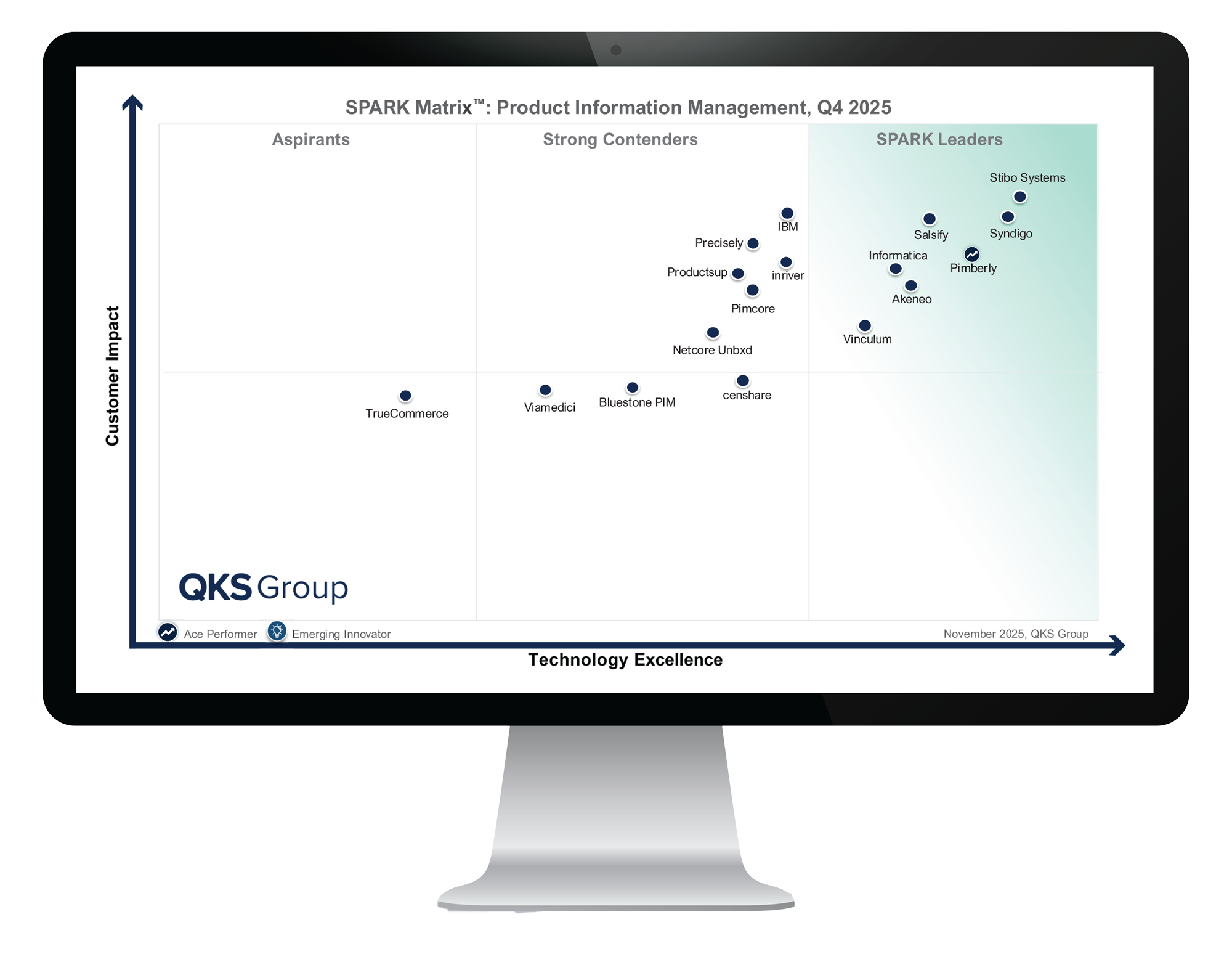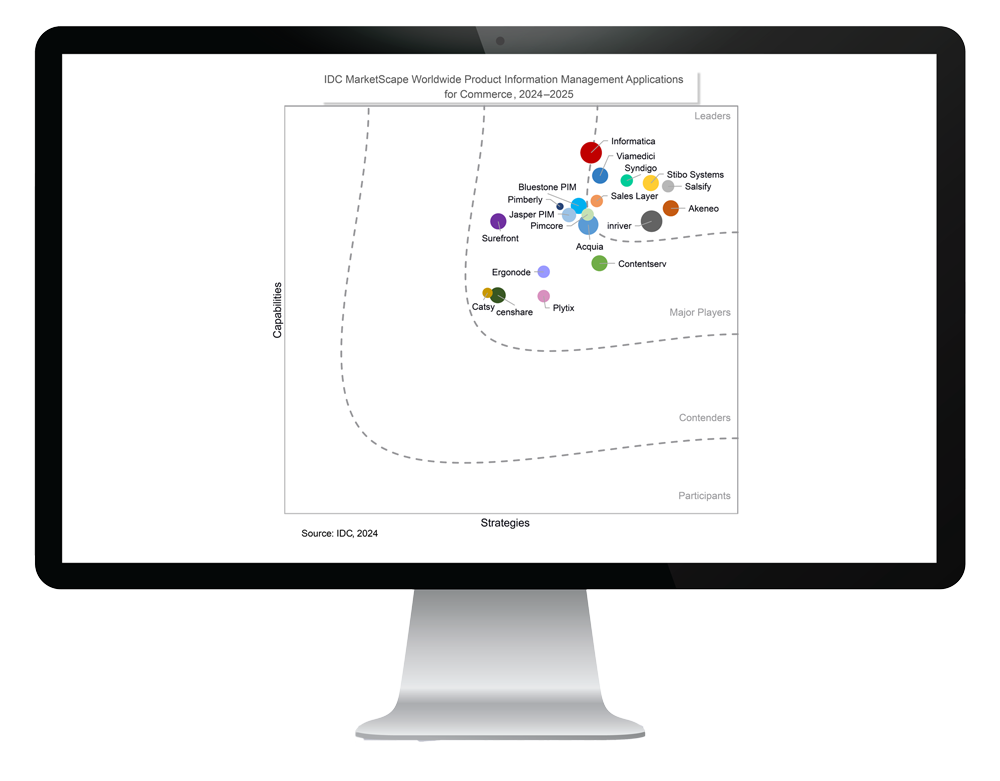Stibo Systems Recognized as a Leader in the SPARK Matrix ™: Product Information Management, Q4 2025 Report
QKS Group's latest report named Stibo Systems as a Leader for Product Information Management (PIM) once again. Read the report to see why Stibo Systems is a Leader and how enterprises are looking for more than basic PIM, embracing safeguarded AI and future-proofing with cloud-based solutions.
Download the report



.png)





